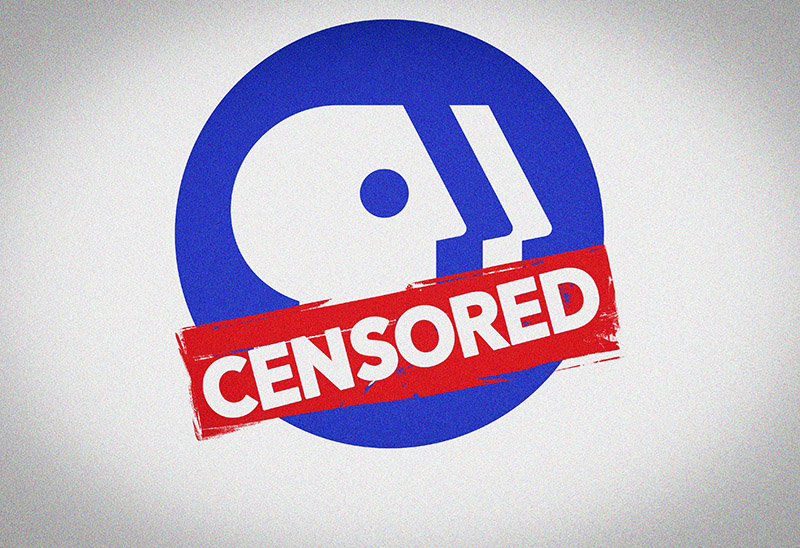Florida Legislature Expands “Don’t Say Gay” Law, Along with Book Ban
Law prohibits LGBTQ classroom instruction in grades K-8 and makes it easier to remove books from school library shelves.

Florida lawmakers have approved a bill expanding prohibitions on LGBTQ content in the state’s existing “Parental Rights in Education” law — dubbed the “Don’t Say Gay” law by opponents — through high school.
The new law also contains what opponents call a “book ban” provision, which permits any county resident — regardless of whether they have children enrolled in school — to demand the removal of books they deem objectionable from school library shelves.
The expanded law passed on a party-line vote in both chambers, which are controlled by Republicans, and now heads to the desk of Republican Gov. Ron DeSantis for his signature into law.
At DeSantis’s urging, the Florida Board of Education previously expanded the law by passing a new rule governing “professional conduct” by teachers that prohibits instructors in grades K-12 from “intentionally provid[ing] classroom instruction” on sexual orientation or gender identity. Teachers found in violation of the rule can face suspension or have their teaching licenses revoked.
But the Florida Board of Education’s rule is considered an executive action, as all seven members — including Commissioner of Education Manny Diaz, Jr. — are gubernatorial appointees, meaning that a future administration could reverse course and repeal the rule without having to go through the legislature. To enshrine the prohibitions on LGBTQ content into law — and making it harder to repeal, even under future gubernatorial administrations — Republicans had to pass it through the legislative process.
Under the expanded law, classroom instruction on sexual orientation or gender identity — or even references to it in passing — are prohibited in grades PK-8. Teachers in high school may only broach LGBTQ-related topics in a limited manner, such as in a biology or sex education class, with instruction that is “age appropriate or developmentally appropriate” for students, and may not advocate on behalf of pro-LGBTQ causes in front of students.
The law also prevents teachers from addressing transgender students by their preferred pronouns — even if the student’s parents give their permission — and requires teachers to only recognize a student’s assigned sex at birth. Proponents of that provision frequently argue that acknowledging a trans or nonbinary student’s preferred pronouns may clash with other students’ personal religious or moral beliefs and violate their right to be free from compelled speech.
“This bill promotes parental rights, transparency, and state standards in Florida schools. It requires that lessons for Florida’s students are age-appropriate, focused on education, and free from sexualization and indoctrination,” State Rep. Adam Anderson (R-Palm Harbor), who co-introduced the bill, previously stated.
The bill also creates a process making it easier to challenge books in an effort to have them removed from library shelves. Under the new guidelines, any person within a county can challenge a book for any reason. Once a challenge is initiated, the book must be immediately pulled from circulation and undergo a review process to determine whether it may return to the shelves, reports The Hill.
LGBTQ advocates are essentially helpless to stop the law from being enforced, with legal challenges to the existing law having been dismissed, but continue to express concerns that the restrictions will impact LGBTQ youth.
Opponents worry that not only will teachers be effectively barred from acknowledging or affirming an LGBTQ student’s identity, but will be forced to “out” such students to their parents. Additionally, some advocates worry that students who are already “out” — even those with supportive parents — can potentially be punished by overzealous administrators seeking to retaliate against them for exercising their free speech rights.
“The Don’t Say LGBTQ law has already caused sweeping damage across our state,” Jon Harris Maurer, the public policy director for statewide LGBTQ organization Equality Florida, said in a statement. “It was wrong when it was adopted, and expanding it is wrong now.
“Books are being removed en masse. Rainbows are being censored from classrooms. Districts are refusing to recognize the historical contributions of LGBTQ people for fear of the Governor’s wrath,” Maurer said of the way the law is already being enforced by school administrators. “This expansion exacerbates the damaging impacts being felt by students and families in Florida.”
Maurer also argued that the law denies the parental rights of affirming heterosexual parents of LGBTQ youth, as well as LGBTQ parents, by requiring their children to curb their free speech and expression — even to the point of acknowledging their families — for fear of running afoul of the law.
“Parents should have the right to ensure their children are respected in the classroom. Our schools should be celebrating the diverse families that make up our communities, not erasing them,” Maurer said. “Shame on Governor DeSantis and lawmakers perpetuating a political crusade against LGBTQ Floridians.”
GLSEN, a national advocacy group that fights for LGBTQ-affirming policies in schools, released a statement touting mayors across Florida who have signed the organization’s “Rise Up” pledge, promising that their communities are “safe spaces” for LGBTQ youth.
“LGBTQ+ youth in Florida have faced relentless attacks from extremist politicians intent on silencing, excluding, and erasing them,” GLSEN Executive Director Melanie Willingham-Jaggers said in a statement. “We’re grateful for the leaders who have pledged to rise up in support of LGBTQ+ youth and policies that promote safe and inclusive schools. We stand in solidarity with LGBTQ+ youth and supportive parents and educators in Florida, and we’re never going to stop fighting for safe, inclusive, and affirming learning environments for all students.”
Support Metro Weekly’s Journalism
These are challenging times for news organizations. And yet it’s crucial we stay active and provide vital resources and information to both our local readers and the world. So won’t you please take a moment and consider supporting Metro Weekly with a membership? For as little as $5 a month, you can help ensure Metro Weekly magazine and MetroWeekly.com remain free, viable resources as we provide the best, most diverse, culturally-resonant LGBTQ coverage in both the D.C. region and around the world. Memberships come with exclusive perks and discounts, your own personal digital delivery of each week’s magazine (and an archive), access to our Member's Lounge when it launches this fall, and exclusive members-only items like Metro Weekly Membership Mugs and Tote Bags! Check out all our membership levels here and please join us today!




























You must be logged in to post a comment.